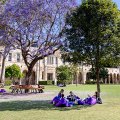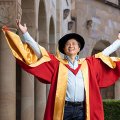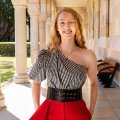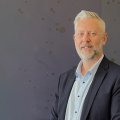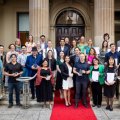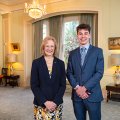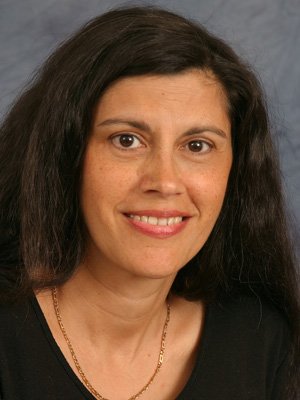
A University of Queensland academic has been rewarded for her commitment to peace.
Associate Professor Marianne Hanson from the UQ School of Political Science has won a Peace Women’s Award from the Women’s International League for Peace and Freedom’s Queensland Branch, in recognition of her work on nuclear issues.
The award, to be presented in April, recognises the talents and dedication of women who have promoted peace at the local, national and/or international levels.
The Women’s International League for Peace and Freedom was founded in 1915, during the First World War, and works towards disarmament, the peaceful resolution of conflicts, economic and social justice and environmental sustainability.
It has offices in Geneva and New York, and has consultative status with several United Nations agencies.
The Peace Women awards were established to honour local women as peace-builders and to raise awareness of UN Security Council Resolution 1325, which recognises that women are not only victims of war, but are also active peace-builders in their communities, and which supports the participation of women in peace negotiations and in post-conflict reconstruction.
“I feel very honoured to have been recognised, but I have been inspired by the work of so many other women,” Dr Hanson said.
Dr Hanson’s research focuses on global security, international law and international institutions, with a specialisation in arms control and disarmament.
She has presented submissions to parliamentary bodies and to the United Nations in New York. In 2000 she was appointed to Australia’s National Consultative Committee on International Security Issues, and she is a member of the Council for Security Cooperation in the Asia-Pacific.
UQ Head of the School of Political Science and International Studies Associate Professor Richard Devetak said the award was a fitting tribute to Dr Hanson’s work.
“This is a fabulous recognition of Marianne’s years of dedication and hard work to humanitarianism, internationalism, peace and disarmament through her scholarly and civic activities,” he said.
“It also reaffirms the school’s position as a leader in the provision of education in peace and conflict resolution,” he said.
Further information: Gillian Ievers, g.ievers@uq.edu.au

